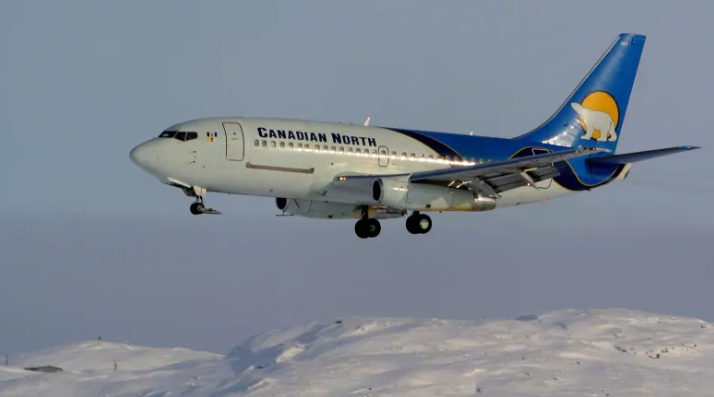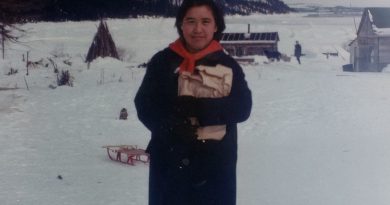Report saying airline merger would jack up prices in Arctic Canada ‘ignorant’ of northern realities, say Inuit orgs

The Inuit organizations behind two of the major airline companies serving the Canadian Arctic lambasted a report from Canada’s Competition Bureau on Tuesday which said merging their two airlines could increase prices and decrease service in the North.
Makivik, the Inuit land claims organization that represents the Inuit of Arctic Quebec, owns airline company First Air. The Inuvialuit Development Corporation, the Inuit land claims organization that represents the Inuit of Canada’s western Arctic, owns Canadian North.
The two companies first announced plans to merge in July 2018 saying it would improve service in the North, where the vast majority of Inuit communities are fly-in only and usually number only a few hundred people.
“By neglecting to consider the overwhelming financial and non-financial benefits to northerners that will be generated, the Bureau’s assessment fails to recognize that a merger is necessary to sustain air travel to the North and relieve the substantial financial burden currently shouldered by Inuit Land Claim Organization (LCO) owners,” said the two organizations in a joint news release Tuesday posted on Makivik’s website.
“This process is representative of southern-led institutions’ continued ignorance of northern businesses and we disagree with the Bureau’s decision to ignore the overwhelming and substantial positive impacts this transaction would have for northerners.”
Reductions in passenger and cargo capacity, increases in price, reductions in flight schedules
First Air currently serves 32 northern communities in Canada’s Northwest Territories, the eastern Arctic territory of Nunavut, Nunavik, as well as the cities of Edmonton, Ottawa, and Montreal.
Canadian North serves 16 communities in the Northwest Territories and Nunavut, as well as Edmonton and Ottawa.
Canada’s Competition Bureau report, dated February 25, says the merger was likely to affect several areas of the North: the Qikiqtaaluk and Kitikmeot regions in Nunavut, service between Yellowknife and Inuvik in the Northwest Territories, as well as the Ottawa-Iqaluit route and the Trans-Arctic route linking Yellowknife to the Nunavut communities of Rankin Inlet and Iqaluit.
“The effects of the transaction are likely to include reductions in passenger and cargo capacity, increases in price, and reductions in flight schedules,” says the report.
Economic realities “ignored”
Makivik and the Inuvialuit Development Corporation said the report did not take their reality into account.
“The Bureau’s narrowed focus also ignores the economic realities (i.e., significant inefficiencies due to overlapping routes, insufficient demand and redundant schedules servicing small and sparsely settled remote communities over vast distances) which are driving the parties – who otherwise face the risk of being driven out of business – to do this deal,” they said. “A merger will allow us to realize operational efficiencies that are needed to bridge the service gap and continue to be financially viable.”
In a press release issued on Tuesday, the Competition Bureau said their report had been given to Canada’s Minister of Transport Marc Garneau.
Transport Canada is also preparing a separate review of the merger.
The final decision will be made by cabinet after recommendations from Minister Garneau.
Write to Eilís Quinn at eilis.quinn(at)cbc.ca
Related stories from around the North:
Canada: Competition Bureau says Arctic airline merger could cause higher prices, fewer flights, Eye on the Arctic
Finland: Turkish Airlines to carry tourists to Finnish Lapland through new Istanbul hub, The Independent Barents Observer
Norway: Longer runway for bigger planes in Kirkenes, northern Norway, The Independent Barents Observer
Russia: Airline companies merge in Arctic Russia, The Independent Barents Observer
Sweden: Swedish regional airline Nextjet files for bankruptcy, cancels all flights, Radio Sweden
United States: Alaska Airlines adds restrictions on emotional support animals, Alaska Public Media




If the prices are going to up on air lines please include to sanitize all planes so viral diseases or bacterial infection won’t spread from unclean and unsanitize planes.